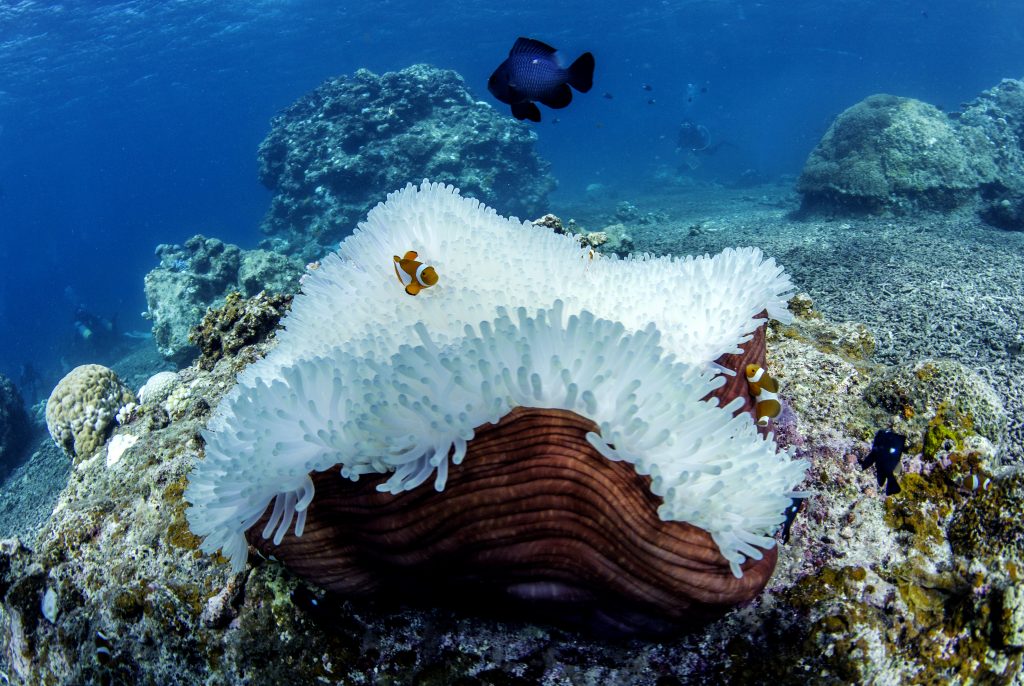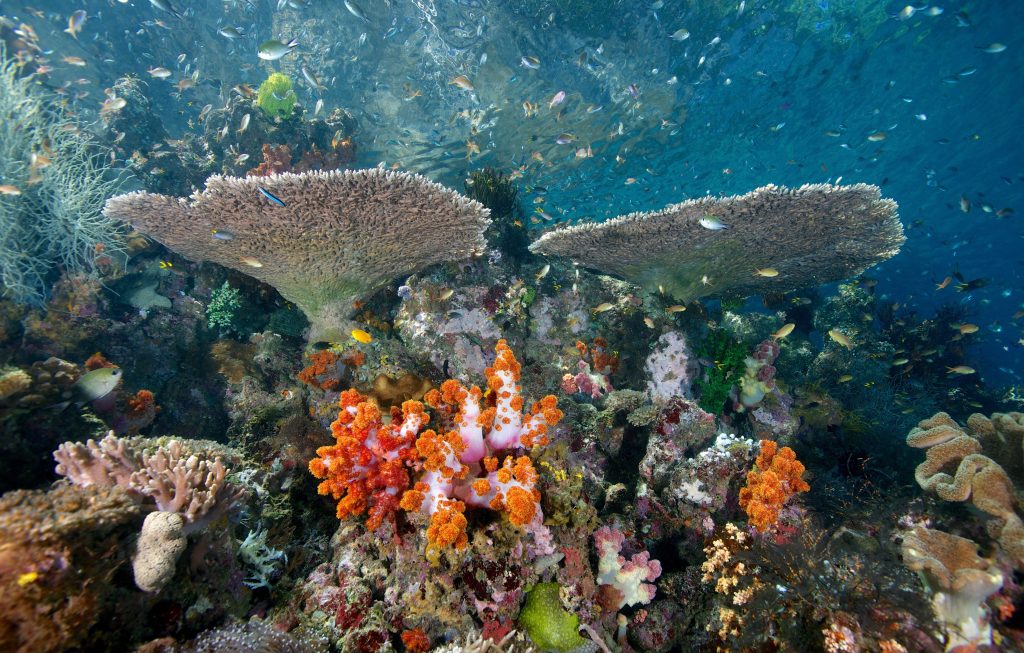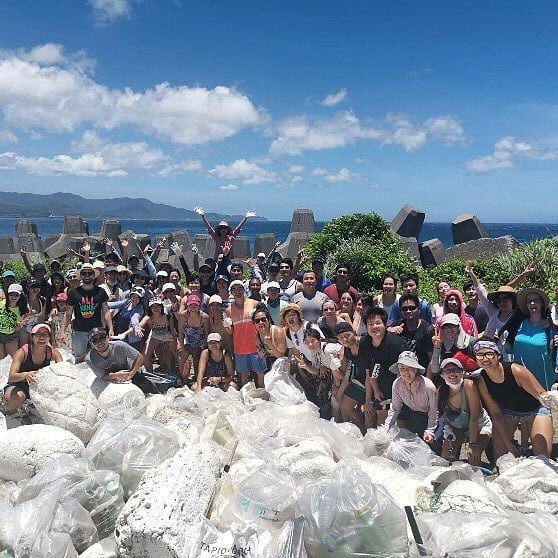Corals crave junk food. And we created it.
What is your poison? No, I don’t mean that literally. But if we’re honest we all have something we love that is super unhealthy. For some it’s fast food, for some it’s cigarettes. If I’m being honest, for me it’s sugar. Man I love ice cream and marshmallows and brownies, you name it.
Now it turns out we’re not the only ones craving unhealthy things. Corals do too.
National Geographic published an article saying scientists found out that some corals are feeding on tiny pieces of plastic. As we’ve mentioned in this article microplastic is the most dangerous effect of plastic that most people don’t even realize. Read it to find out why.
Now some corals even prefer microplastic over natural food. When I heard that I asked myself: Why is that and what are the effects? So here we go:

Why do corals love plastic?
Scientists from the Duke University found out that corals seem to like plastic because of the taste. Apparently us humans made plastic too tasty.
Plastic contains a vast amount of added chemicals. Those chemicals are being released when it breaks down in the water. Those chemicals are also the reason why corals love plastic. Corals detect those “aromas” using their chemosensors. This is like their version of a tongue. Apparently chemicals in microplastic particles seem to have the same effect on them like added spices in fast food to us.
How did scientists find that out?
Study co-leads at the Duke University, Austin S. Allen and Alexander C. Seymour, said they tried to feed the corals sand and microplastics. When the sand came near to the coral’s “mouth”, it closed. The coral then used it’s body to get rid of the sand. With micro plastic, however, the corals used their tentacles to bring the plastic pieces closer to their mouth. Scientists even tried to cover the micro plastic pieces with a biofilm. They thought corals might prefer this because it covers the “taste” of plastic and at least brings a bit of nutrients to the table. Like adding a guacamole dip to your puffed rice. The result was the corals ate plastic 80 % of the time while eating sand only 10% of the time. They even prefered eating the raw plastic over the “plastic-with-a-dip”-version by a rate of up to five times more.
“At least some of the hundreds of additives [in plastic] are acting as phagostimulant — a fancy word for compounds that are tasty,” Seymour said.

Credit: The Ocean Agency / Ocean Image Bank
What are the effects?
The good news is that corals poop out most of the plastic within 24 hours. Unfortunately around 8% keep stuck in their gut. This is especially bad news for the corals since they feed on empty calories and gain no growth benefit from their meal.
The leaching of the chemicals in their gut can also lead to severe hormonal changes.
There are many dangerous microbes (pathogenes) that have the chance to be transported all over the world on the surface of micro plastic beads. This is what a new study by Dr. Joleah Lamb, a marine biologist at Cornell University and lead author of the new study, is trying to find out. “Plastic debris acts like a marine motorhome for microbes,” he said. “Plastic items – commonly made of polypropylene, such as bottle caps and toothbrushes – have been shown to become heavily inhabited by bacteria. This is associated with the globally devastating group of coral diseases known as white syndromes”.
White syndrome, aka white band disease, is spread by bacteria, and causes parts of corals to die leaving a white band of dead tissue.
Dr. Mia Hoogenboom who worked on a study, led by the ARC centre of excellence for coral reef studies at James Cook University, said corals can even suffer a “very slow process of starvation” should their stomachs become overloaded with plastic.
This is especially bad news if you consider that more and more corals die due to polluted water and rising water temperature.

Credit: Gregory Piper / Ocean Image Bank
Conclusion
We know cigarettes, fast-food and sugar is extremely bad for our health. Scientists have said that for years now. If we choose to consume it, we mostly harm ourselves.
Micro plastic, pollution, overfishing and the ongoing climate crisis on the other hand have a heavy impact on our whole planet and it’s ecosystems, not only on our own body.
As a result, over 50 percent of the world’s coral reefs have died in the last 30 years and up to 90 percent may die within the next century.
With plastic we have created something that has many benefits. This makes it extremely hard for us to avoid it. Unfortunately we don’t really have this material under control. We might create new plastic, we might give old plastic new life but we don’t control what happens when plastic breaks down in nature. And if we look at what happens to animals, our ocean and corals it seems like we are helpless.
Fortunately people research heavily to find a solution. They even try to breed corals that are more heat resistant with the help of probiotics.
What can you do?

The best thing we can do is to do everything it takes to keep plastic out of the ocean. With thousands and thousands of plastic particles entering the oceans each year this is definitely easier said than done.
This is why we need to use plastic we have as long as possible. We need to live on the basis of: Rethink what you don’t necessarily need. Refuse if it’s not environmentally friendly. Reduce energy consumption and product consumption if not needed. Reuse products as long as possible. Repair or Repurpose if anything is broken. And Recycle as a last option.
Another option to prevent plastic from entering the ocean is to join one of many (beach) cleanup initiatives world wide. We’ve even partnered up with the 5 Minute Foundation so that you are able to be part of a cleanup wherever and whenever you want! With our games, like Pretty Beach, Build Bridge, etc. you can play and have fun. The money we get from the in-app-ads help to finance and realize real life beach cleanups. You pretty much donate without using your own money. Sounds awesome?
>>> Just click here and start being a hero. <<<
Now tell us what you think. Did you know corals love plastic? We’d love to hear your thoughts.




